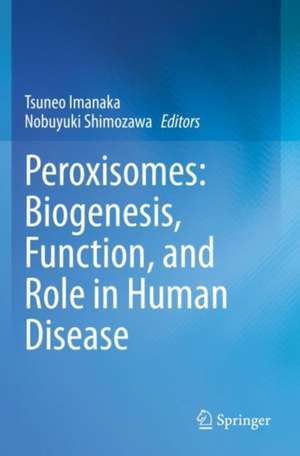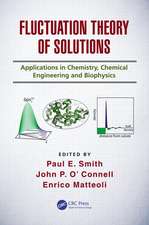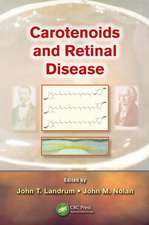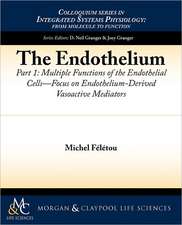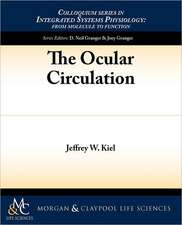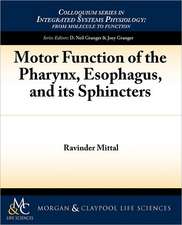Peroxisomes: Biogenesis, Function, and Role in Human Disease
Editat de Tsuneo Imanaka, Nobuyuki Shimozawaen Limba Engleză Paperback – 17 ian 2021
| Toate formatele și edițiile | Preț | Express |
|---|---|---|
| Paperback (1) | 989.38 lei 38-44 zile | |
| Springer Nature Singapore – 17 ian 2021 | 989.38 lei 38-44 zile | |
| Hardback (1) | 1169.55 lei 3-5 săpt. | |
| Springer Nature Singapore – 17 ian 2020 | 1169.55 lei 3-5 săpt. |
Preț: 989.38 lei
Preț vechi: 1041.45 lei
-5% Nou
Puncte Express: 1484
Preț estimativ în valută:
189.38€ • 205.78$ • 159.18£
189.38€ • 205.78$ • 159.18£
Carte tipărită la comandă
Livrare economică 18-24 aprilie
Preluare comenzi: 021 569.72.76
Specificații
ISBN-13: 9789811511714
ISBN-10: 9811511713
Pagini: 279
Ilustrații: XII, 279 p. 65 illus., 33 illus. in color.
Dimensiuni: 155 x 235 mm
Greutate: 0.54 kg
Ediția:1st ed. 2019
Editura: Springer Nature Singapore
Colecția Springer
Locul publicării:Singapore, Singapore
ISBN-10: 9811511713
Pagini: 279
Ilustrații: XII, 279 p. 65 illus., 33 illus. in color.
Dimensiuni: 155 x 235 mm
Greutate: 0.54 kg
Ediția:1st ed. 2019
Editura: Springer Nature Singapore
Colecția Springer
Locul publicării:Singapore, Singapore
Cuprins
Part 1 Biogenesis and Function of peroxisome 1 The history of peroxisomal research 2 Peroxisome Biogenesis 3 Peroxisome Degradation and Its Molecular Machinery 4 The function of the peroxisome Part 2 Dysfunction of Peroxisome and Human Disease 5 Peroxisomal disorders 6 Model organisms used to understand peroxisomal disorders 7 Diagnosis of peroxisomal disorders 8 Therapeutic strategies for X-linked adrenoleukodystrophy, a representative peroxisome disease Part 3 Topics in Peroxisome Research 9 The isolation of peroxisomes 10 Structure Biology of peroxisomal proteins, peroxins 11 Lipidomics of peroxisomal disorders 12 Neurophysiology and neuropsychology for X-ALD
Notă biografică
Tsuneo Imanka, Faculty of Pharmaceutical Sciences, Hiroshima International University, Japan
Nobuyuki Shimozawa, Division of Genomics Research, Life Science Research Center, Gifu University, Japan
Textul de pe ultima copertă
This book provides readers with a comprehensive overview of peroxisomes and their role in human diseases. It starts by describing the history of peroxisome research and then examines in detail the current understanding of the biogenesis and function of peroxisomes. It then focuses on peroxisomal disorders and the involvement of peroxisomes in cancer and age-related diseases, discussing in detail the use of model organisms to elucidate the pathogenesis of peroxisomal disorders and the physiological importance of peroxisomal proteins. Further, the book examines diagnostic and therapeutic strategies in peroxisomal disorders as well as significant recent advances. Lastly, it addresses various topics in peroxisome research, including the isolation of peroxisomes from mammalian tissues and cells, the structural biology of peroxisomal proteins, the lipidomics of peroxisomal disorders, the value of exome sequencing, and neuropsychological testing in X-linked adrenoleukodystrophy. Given its scope, the book is a valuable resource for postgraduate students and researchers in the life sciences and clinicians in the fields of internal medicine, pediatrics, and neurology.
Caracteristici
Describes our current understanding of the biogenesis and function of peroxisomes
Examines the role of peroxisomes in human diseases and the latest diagnostic and therapeutic strategies
Discusses a range of hot topics in peroxisome research
Examines the role of peroxisomes in human diseases and the latest diagnostic and therapeutic strategies
Discusses a range of hot topics in peroxisome research
